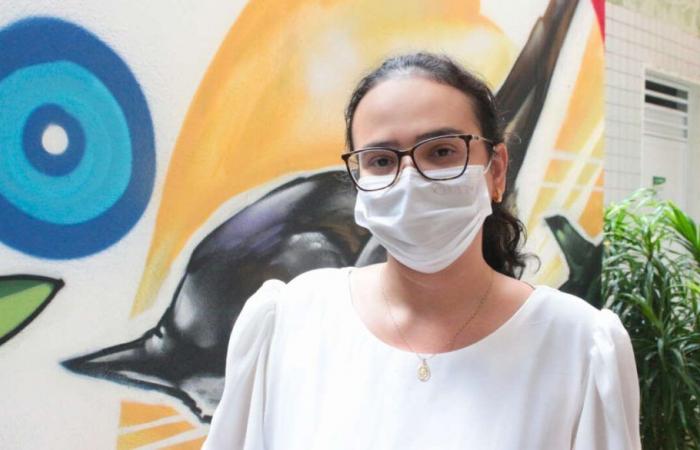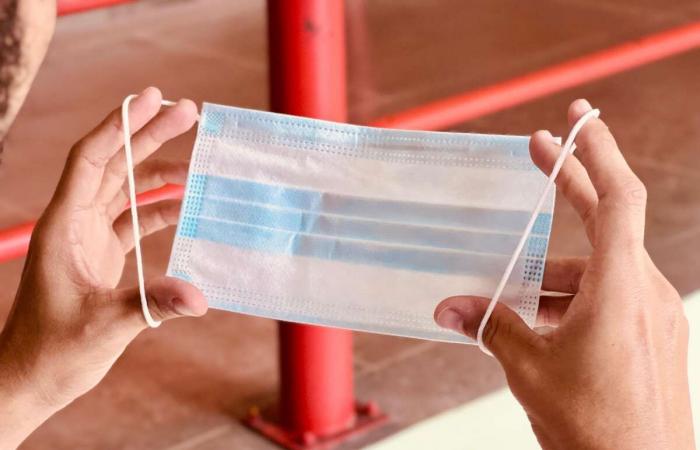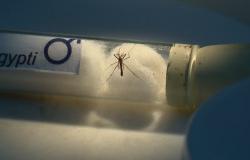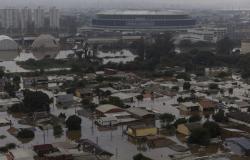April 23, 2024 – 09:35
Ceará School of Public Health esp ce Respiratory Label flu
Juliana Marques – Ascom ESP-CE – Text and Infographics
Deborah Muniz – ESP-CE – Photos
Raiane Ferreira – ESP-CE – Video
Wearing a mask is a practice that has become routine for many people, even after the most critical period of the covid-19 pandemic.
Nurse Thaís Mafrense (photo), who works in the municipality of Camocim (CE), as she is in the health sector, already knew about the importance of using a mask and other practices in the prevention protocol against respiratory diseases, even before the arrival of the then “new” coronavirus and the covid-19 pandemic decree, starting in 2020.
“But the scenario made me look further and value prevention actions even more”, he recalls. The professional also noticed that, after the control measures adopted at the beginning of the health crisis, there was a significant drop in the indicators of other viruses such as influenza, for example.
The professional’s perception also supports several scientific researches, one of which was conducted by the Oswaldo Cruz Foundation (Fiocruz). The study, released in June 2021, analyzed different types of masks, used by 28 patients with confirmed Sars-CoV-2 infection, and found that the viral load was concentrated only in the inner layer of the protective item, reinforcing its efficiency.
Habit that is here to stay
After the exhausting days spent on the front line against the disease and living in a new epidemiological reality, the habit of wearing a mask gained even more strength and went beyond the walls of the health units where he works.
The professional, who is the mother of two children, became a resident in Family and Community Health of the Residency Program in the Professional Area of Health (Uniprofessional and Multiprofessional – Resmulti) at the School of Public Health of Ceará ESP/CE, an agency linked to State Health Department (Sesa).
Protecting the family from possible contamination is what leads Mafrense to continue following this safety measure, which is part of the respiratory etiquette recommendations.
What is that?
The term “respiratory etiquette” existed even before the Covid-19 pandemic became a global emergency. This is a series of actions that can reduce the risk of transmitting infectious diseases through fluids generated while we talk, cough or sneeze.
These prevention measures include: using surgical masks in case of a runny nose or cough, washing your hands with soap and water throughout the day, and covering your mouth and nose with a tissue when coughing or sneezing – disposing of the material immediately after use.
According to the infectology consultant at ESP/CE, Keny Colares, if disposable paper is not available, the forearm can be used. “When you cough and use your hands, that’s good because it prevents transmission, but now your hands are contaminated and, naturally, you touch other people. So, the ideal is to use disposable paper or your forearm, since you won’t touch anyone there,” he explains.
Check out more guidance in the video below:
For those who are not sick, the care is the same. According to Colares, we are in a seasonal season with viruses circulating. “So, in this case, it is worth wearing masks in more closed places or where there is a lot of crowds.”
One of the fundamental items, for those who want to stay in good health, is updating their vaccination records. “We are in the middle of a campaign and people need to get immunized, it is an effective way to avoid contamination”, he adds.
Current preventive measures
Even with the end of the emergency situation in the state due to the covid-19 pandemic, masks continue to be recommended in some situations, according to the latest decree on the subject from the Government of Ceará, published in the Official Gazette:
– Patients with respiratory symptoms or positive for covid-19 and their companions;
– Patients who had close contact with a confirmed case during the disease’s transmissibility period (last ten days);
– Professionals who triage patients;
– Health service professionals, visitors and companions present in patient hospitalization areas, such as wards, rooms, intensive care units, urgency and emergency units, corridors of hospitalization areas, etc.;
– Situations in which the use of a face mask is indicated as personal protective equipment (PPE) for healthcare professionals, in any area of the healthcare service.







